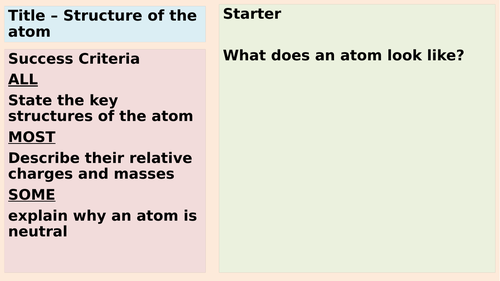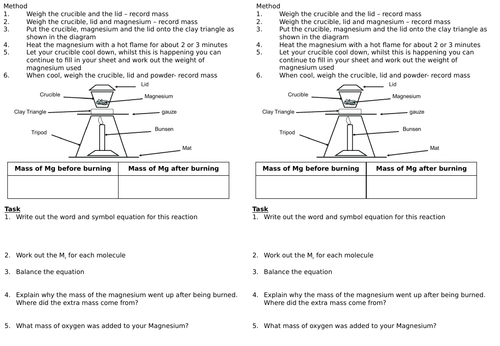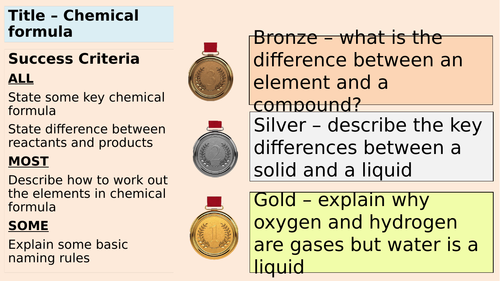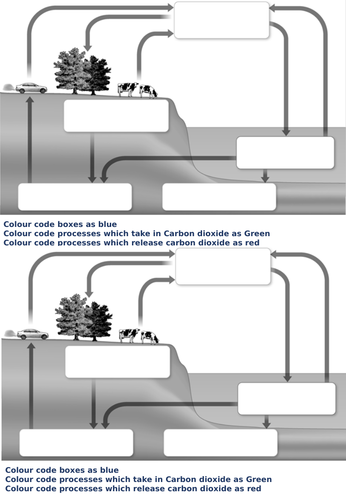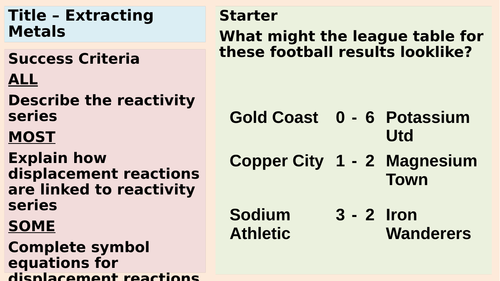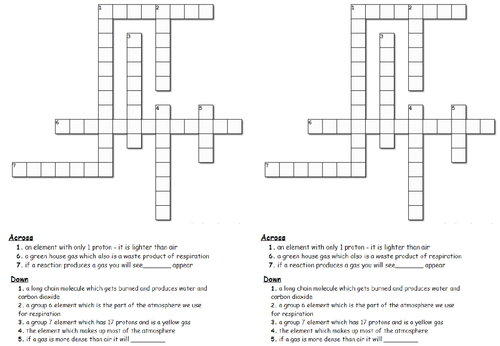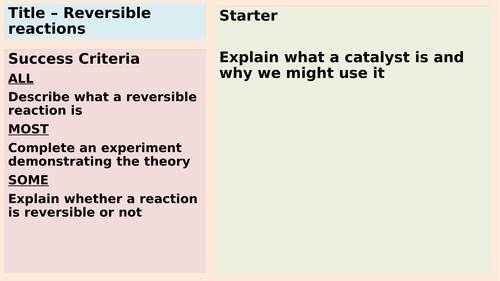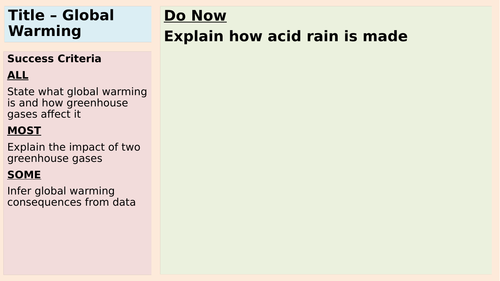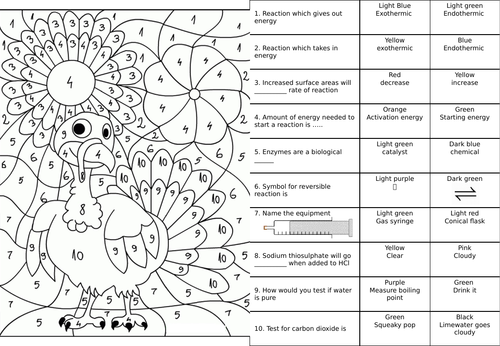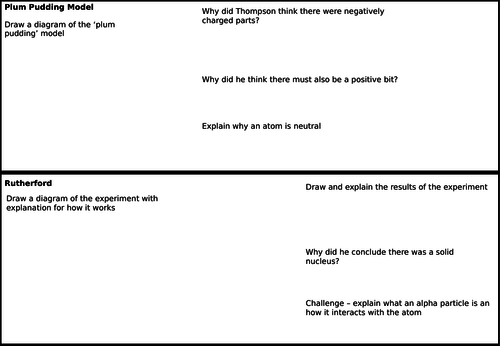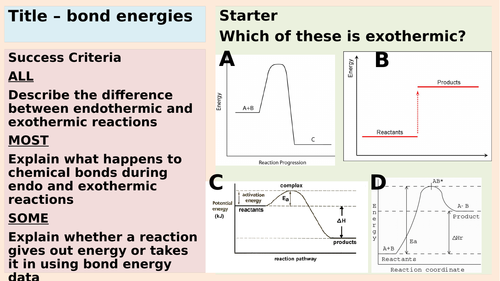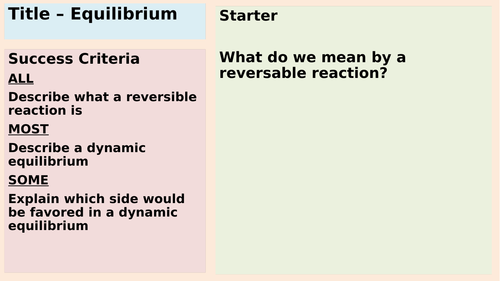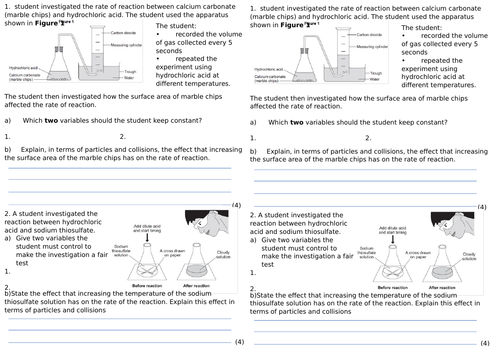
101Uploads
46k+Views
35k+Downloads
Chemistry

AQA GCSE Structure of the Atom
A lesson looking at the structure of the atom, each sub atomic particle, what the atomic number and mass number refer to and how we can tell the number of each sub atomic particle. It has been split into two lesson but could be condensed to one by taking some activities out. It is used mainly for the radioactivity work for AQA GCSE Physics but would also work for Chemistry (The Periodic Table)

Conservation of mass
Lesson on conservation of mass and some balancing work. Includes a practical sheet for the burning magnesium with oxygen experiment where students work out the change in mass due to added oxygen

Chemical formula and working out the number of atoms in compounds
Lesson on chemical formula and how to work out the number of atoms in a compound based on its chemical formula
worksheet attached with answers on powerpoint

AQA Carbon Cycle
Lesson on AQA carbon cycle - includes how carbon enters or leaves the atmosphere. Includes worksheet with answers on powerpoint and tasks throughout presentation

Extraction of metals - electrolysis and smelting with carbon + practicals
A powerpoint for two lessons take students through the reactivity series and extraction of metals. It includes practical sheets for both smelting and electrolysis

OCR C1 tests for different gases
A starter crossword getting students thinking about the elements which will be looked at. Answers on powerpoint.
A powerpoint which goes through all of the tests with practical ideas for two of them.
A worksheet where students must label the diagrams to explain what is going on with each test. Answers on powerpoint

AQA GCSE Reversible reactions
A lesson looking at reversible reactions - leads onto dynamic equilibrium

AQA Global Warming and Climate change - two lessons
Here is a presentation which is split into two lessons, one on the concepts of global warming and greenhouse effect and one on climate change and its impacts. There are two activities to accompany this as well as activities embedded into the powerpoint.

AQA GCSE Rates of reaction colour by numbers sheet
Revision activity for a more low ability GCSE group - colour by numbers based on questions from the rates of reaction module of aqa GCSE

AQA Development of Atomic Model
Depending on emphasis this can be used both for Chemistry (Periodic table) or Physics (particle model of matter)
It gives an explanation of each of the stages and worksheet to accompany

AQA GCSE concentration and rates of reaction - required practical
Lesson looking at how concentration affects the rate of reactions. this includes work and guidance on preforming the required sodium thiosulfate practical

AQA Working out bond energies for Exothermic and Endothermic reactions
This resource is good for GCSE AQA Chemistry on working out whether a reaction is endothermic or exothermic based on the bond energies. It would also work with a high ability year 8 group following the Kerboodle Activate scheme of work.
Powerpoint takes you through key idea of endothermic and exothermic again, then has some worked examples of how to work out the bond energies.
Worksheet tests students knowledge starting with easy pre-balanced equations and ending with combustion of alkanes to be worked out from scratch .

AQA GCSE Dyanmic Equilibrium
A lesson covering AQA GCSE Dyanmic equilbrium - includes activities throughout to check understanding - follows on from reversible reactions

AQA GCSE rates of reaction and effect of surface area
A lesson looking at rates of reaction and factors effecting this. It looks in detail at surface area and rates of reaction with a practical sheet and exam questions. Answers on powerpoint

